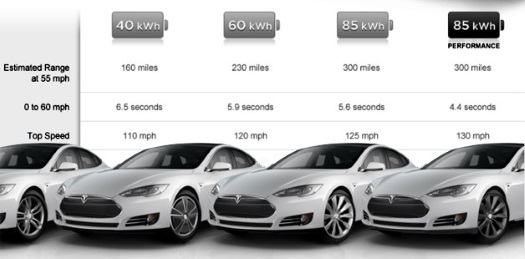
Tesla Motors has found initial success in the luxury electric vehicle market, and will look to capitalize on that momentum through aggressive expansion, planning a new 35 GWh lithium-ion (Li-ion) cell production facility. Dubbed the “Gigafactory,” it poses a tremendous risk for Tesla and its partner Panasonic, and Lux Research analyzes whether the $5 billion investment is justified by electric vehicle (EV) sales volumes and the interrelated question of breaking through the price floor for Li-ion batteries. We find the Gigafactory will only reduce the Tesla Model 3’s cost by $2,800, not enough to truly influence whether this lower-cost EV will be a success or not. Moreover, our analysis indicates that in the likely case of Tesla selling 240,000 EVs in 2020, its partner Panasonic will be risking low margins, and the Gigafactory will be running at significant overcapacity, which other carmakers and stationary applications are unlikely to offset.
Tesla and its partner, Panasonic, will contribute about 45% and 35%, respectively, of the initial $4 billion required to build the Gigafactory, proposed to go on-stream in 2017. An analysis by Lux Research projects sales of only 240,000 cars in 2020, leading to razor-thin margins to Panasonic and 57% overcapacity.
“The Gigafactory will only reduce the Tesla Model 3’s cost by $2,800, not enough to sway the success of the planned lower-cost EV,” said Cosmin Laslau, Lux Research Analyst and the lead author of the report titled, “The Tesla-Panasonic Battery Gigafactory: Analysis of Li-ion Cost Trends, EV Price Reduction, and Capacity Utilization.”
“Besides, Lux’s analysis reveals significant overcapacity because Tesla will miss its ambitious target of half a million,” he added.
Lux Research evaluated Tesla Motors’ Gigafactory plan and its consequences for the EV industry. Among their findings:
• Cost-cutting is the name of the game, but the Gigafactory does not do enough. Battery prices need to fall dramatically if plug-in cars hope to break beyond their current niche. The OEMs backing the U.S. Advanced Battery Consortium are targeting $125/kWh by 2020 – more than four times lower than $520/kWh, the price Ford paid for its Focus EV battery packs. Currently, Tesla has the lowest cost – about $274/kWh, according to Lux Research analysis. Tesla founder Elon Musk aims to cut cost by 30%, on the strength of scale, location and technology, lowering the price to $196/kWh with the Gigafactory.
• Panasonic faces risks. The Gigafactory might seem like a great win for Panasonic, ahead of rivals such as Samsung SDI, LG Chem, and NEC. But in reality the Japanese company faces high risks. In the optimistic scenario of Tesla attaining its targeted half a million EVs, Panasonic could rake in more than $15 billion between 2017 and 2020. But at the more likely 240,000 EVs, as estimated by Lux Research, Panasonic would take in only $7 billion on its likely investment of $1.4 billion, with questionable margins.
• Gigafactory will lead to huge overcapacity. The Gigafactory, proposed to be built at a cost of $5 billion, is designed to make 35 GWh Li-ion cells for half a million EVs. But in the likely event of much lower sales of 240,000, overcapacity will be to the extent of 20 GWh. This 57% overcapacity is unlikely to be filled either by rival carmakers or Tesla’s own plans to sell some stationary battery packs to developers like SolarCity for residential photovoltaic integration and other uses.
The report, titled “The Tesla-Panasonic Battery Gigafactory: Analysis of Li-ion Cost Trends, EV Price Reduction, and Capacity Utilization,” is part of the Lux Research Energy Storage Intelligence service.
About Lux Research
Lux Research provides strategic advice and ongoing intelligence for emerging technologies. Leaders in business, finance and government rely on us to help them make informed strategic decisions. Through our unique research approach focused on primary research and our extensive global network, we deliver insight, connections and competitive advantage to our clients. Visit www.luxresearchinc.com for more information.
Advertisement





